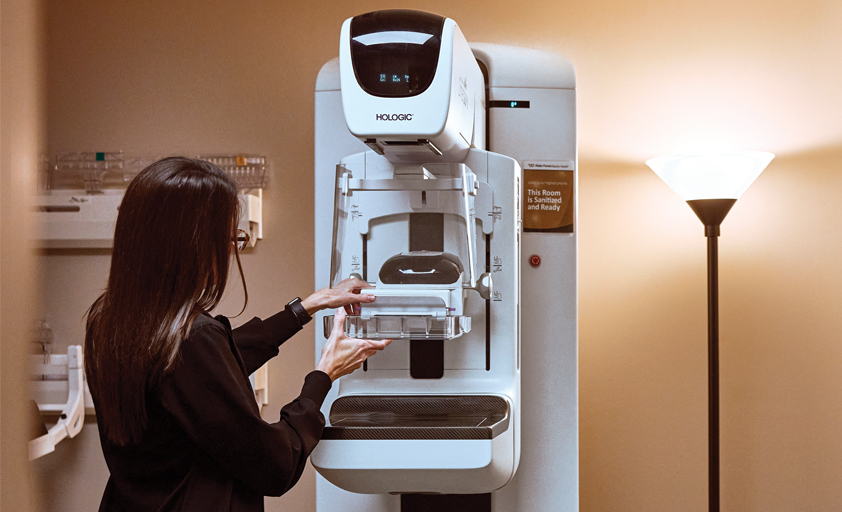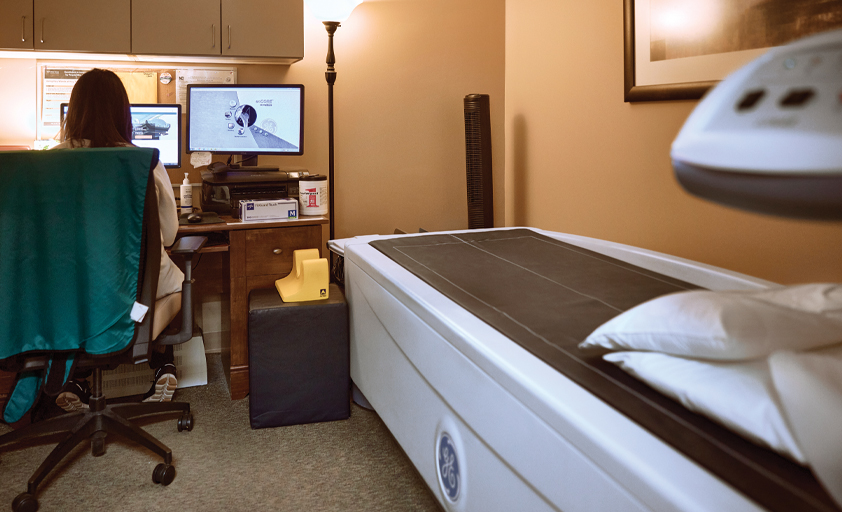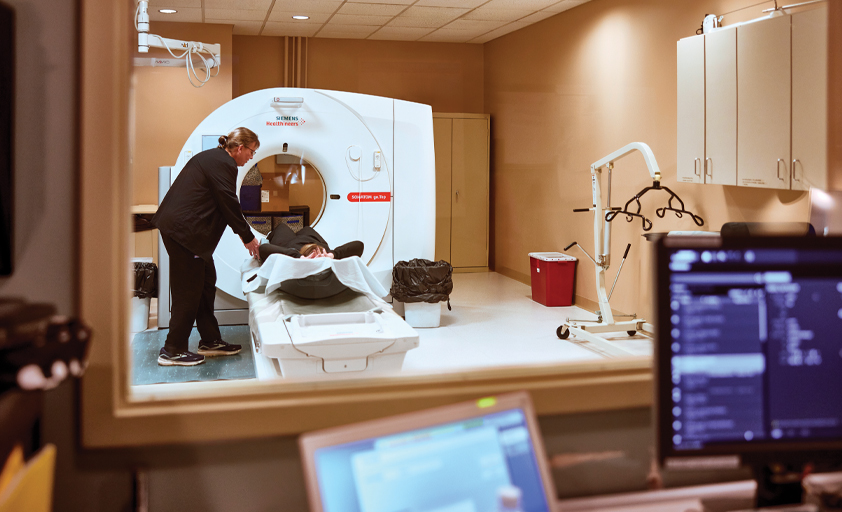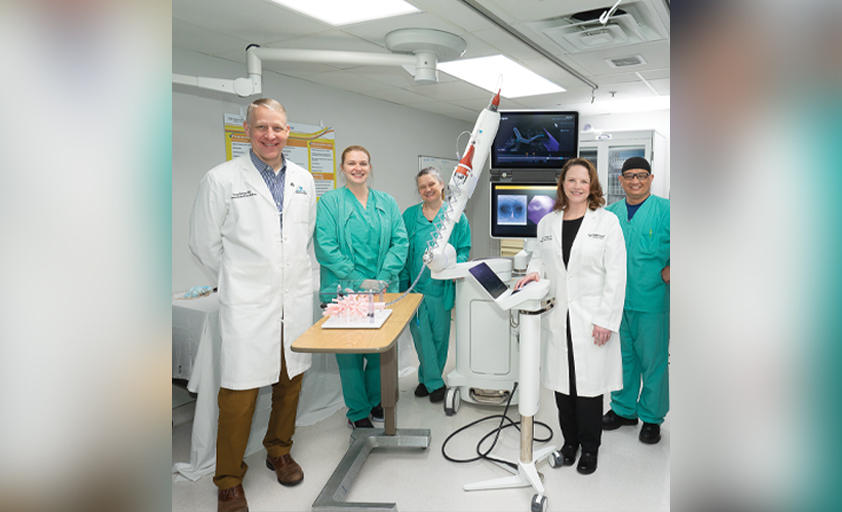Photos by JEJ PHOTOS
While most women long for more time to spend on a self-care routine, that time is not solely about soaks in the bathtub or an afternoon of shopping. Caring for yourself is always the most important task on your to-do list – and it’s sometimes easy to forget that your actions set the tone for your entire family.
That includes inspiring a good healthcare routine. While scheduling your own recommended yearly screenings, you’ll be encouraging everyone else at home – even husbands and dads – to stay up-to-date.
Atrium Health Wake Forest Baptist Outpatient Imaging turns the spotlight this month on three vital screenings you should definitely have scheduled on your calendar. While a mammogram may be the first screening process that comes to mind, women should also schedule a bone density test and a CT lung screening.
Atrium Health Wake Forest Baptist Outpatient Imaging partners with the expert radiologists of Atrium Health Wake Forest Baptist, who are board-certified in diagnostic interpretation, along with providing the benefits of the latest technology. The outpatient facility offers affordable pricing for both insured and uninsured patients, along with the highest quality, patient-centric care and a staff dedicated to your comfort and convenience.
Mammogram
Research shows that adding mammography into a regular wellness routine has helped reduce breast cancer mortality rates by 40%. While a large percentage of women diagnosed with breast cancer have no family history, having a mother, sister or daughter who has been diagnosed does increase your own chances.

Mammograms can be scheduled online at Wakehealth.edu/mammogram, with convenient appointment times to align with even the busiest schedules, at both the Winston-Salem and Kernersville locations. Appointments for 3D mammography are available all week, including evenings and weekends. Most guidelines suggest that women with an average risk of breast cancer should start getting mammograms at around age 40.
“Getting annual screening mammograms is one of the most important things women can do for their health,” shares Dr. Kelly Cronin, Mammography Radiologist. “While the majority of screening mammograms are good news exams, it allows us to find breast cancers at their earliest stages, giving patients the best possible outcomes.”
Bone Density Screening
We also know strong women (and that’s all of us!) need strong bones to live our best lives. Bone strength is equal to both bone density and bone quality. If you’re not familiar with a DEXA, also known as a bone density scan, Dual-energy X-ray absorptiometry (DEXA) is an imaging technology that uses a very low amount of X-ray energy to detect the presence of osteoporosis – a disease that gradually weakens bones, leading to bone fragility and an increased chance of fractures to the spine, hips and wrists. Weakening of the bones can be due to aging or caused by other risk factors that combine with age. Often labeled the “silent disease,” osteoporosis rarely shows symptoms until a good amount of bone mass has been lost. In fact, one out of every two females will have an osteoporotic or fragile bone fracture over the age of 50.

The most obvious symptom may include loss of height along with curvature of the upper back. DEXA scanning can identify low bone density in patients at an early stage, enabling doctors to prescribe treatment before the condition worsens. Images of the lower spine and hips are most often used in checking for osteoporosis, and test results are interpreted by radiologists who sub-specialize in musculoskeletal radiology or providers who are certified as clinical densitometrist. Our scanners include advanced technology known as Trabecular Bone Scoring (TBS) that allows us to evaluate bone quality in the spine, as well as bone mineralization.
Twenty-two million American women are affected by osteoporosis. Plus, in the first five years after menopause, women lose estrogen, a hormone that helps protect them against bone loss. Keep in touch with your healthcare provider to monitor your bone health on a regular basis, and make it easy on yourself by scheduling a bone density exam right along with your mammogram appointment.
“A bone density exam is vital for monitoring good bone health and seeing subtle changes in bone loss,” says Anne Lake, DNP, of the Bone Health Clinic/Fracture Prevention Clinic with Atrium Health Wake Forest Baptist Orthopedic clinic. “It identifies a patient’s risk for fractures and it’s important to remember that the consequences of osteoporosis, like breaking bones, can be prevented. We encourage early screening and routine screenings as well as starting treatment when needed.”
There are mixed recommendations about the timing for bone density screenings, but the guidelines followed at Outpatient Imaging are based on recommendations from the Bone Health and Osteoporosis Foundation (BHOF), the International Osteoporosis Foundation (IOF) and the International Society of Clinical Densitometry (ISCD), that include screening patients in the first one or two years after menopause, or those over age 49 who have had a fracture or have other medical conditions with treatments that are known to compromise bone strength and warrant the medical necessity of screening. If you have concerns about your bone health, talk to your healthcare provider or call our Fracture Prevention Clinic at 336.716.8092.
CT Lung Screening
Rounding out the trio of vital screenings is Low-Dose CT Lung Screening – one of the newest tools available for finding early stage lung cancer when it’s most treatable. Atrium Health Wake Forest Baptist Outpatient Imaging offers a Lung Cancer Screening Program for patients who are at high risk, and connects them to advanced care if concerning findings are seen. Lung cancer is the number one cause of cancer deaths in the United States for both men and women, and its symptoms often don’t develop until the cancer reaches an advanced stage. Once it spreads to other parts of the body, it is difficult to cure; therefore, screening before symptoms develop is very important.
“Lung screening is a simple CT scan capable of detecting lung cancer early when it can be cured,” explains Christina Bellinger, MD, Associate Professor and Director of the Interventional Pulmonary program at Wake Forest School of Medicine.

For patients over age 50 with smoking risk factors, commercial insurance typically covers annual screenings – but check your individual policy to confirm coverage. Annual CT Lung Screenings are suggested for adults ages 50 to 80, who have a 20-pack-year smoking history and currently smoke or have quit within the past 15 years.
Atrium Health Wake Forest Baptist Outpatient Imaging is located at 861 Old Winston Road, Kernersville, and in Winston-Salem, at 265 Executive Park Boulevard. Call 336.765.5722 to schedule an appointment, and visit WakeHealth.edu/imaging for more information on services offered at both locations. Hours are Monday through Friday, 7:30 a.m. – 5:30 p.m. Mammography, bone density and CT lung screenings are available at both the Winston-Salem and Kernersville locations.



















